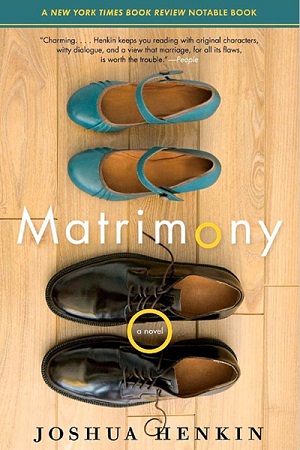 As a fiction writer, I have a litmus test for knowing if a book is one I love love love versus one that is merely admirable. A book that is truly fantastic for me is one that also makes me want to write. It’s not that I go into the reading experience looking to be bitten by contagious writing. But I’ve found that when I read certain writers—Jennifer Egan, Jo Ann Beard, Susan Minot, to name a few—the reverie of their prose is so intense, so real, that I find myself wanting to continue the conversation on my side of the computer screen. It’s been this way for me since I was twelve, when reading Barbara Kingsolver’s The Bean Trees propelled me into my family’s garden, atop our playhouse getting bitten by mosquitoes and fervently mimicking her verdant descriptions of fauna in my journal.
As a fiction writer, I have a litmus test for knowing if a book is one I love love love versus one that is merely admirable. A book that is truly fantastic for me is one that also makes me want to write. It’s not that I go into the reading experience looking to be bitten by contagious writing. But I’ve found that when I read certain writers—Jennifer Egan, Jo Ann Beard, Susan Minot, to name a few—the reverie of their prose is so intense, so real, that I find myself wanting to continue the conversation on my side of the computer screen. It’s been this way for me since I was twelve, when reading Barbara Kingsolver’s The Bean Trees propelled me into my family’s garden, atop our playhouse getting bitten by mosquitoes and fervently mimicking her verdant descriptions of fauna in my journal.
Matrimony, by Joshua Henkin, is one such book. In short, I wanted to marry it.
The love story—between a Waspy New York City boy and a Jewish Montreal girl who meet in a small fictional New England college town their freshman year of school—is at the heart of the novel. The book touches down for sections in Ann Arbor, Berkeley, Iowa City, and New York with the kind of sparkling specificity that made me long for my college hotdog joint.
Henkin is also a master of capturing the emotional minutia of particular times in one’s life and how they shape relationships. The portrait of a typical grad student party, for example —with couples and singles draped on a sagging couch, complaining about their students, while a spouse labored over the stove—was so familiar, so rich in textural detail, that I wanted to crawl into the warmth of that room and pour myself a glass of wine.
The fluidity throughout Matrimony—between sentences, between scenes, sections, time and place, was remarkable. The central relationship reads as both highly particular to these characters and universal in their struggles. You come to care about their fate as you would your college roommates’. In an oft-quoted (in yearbooks, fittingly) Mary Oliver poem, the speaker states, “When it’s over, I want to say: all my life / I was a bride married to amazement.” And so it is as reader, too.
Further Reading:
- Learn more about Joshua Henkin at his author website, or find a copy of Matrimony at an indie bookstore near you.
- Like Jackie’s taste in lit? Read more of her reviews on FWR.




